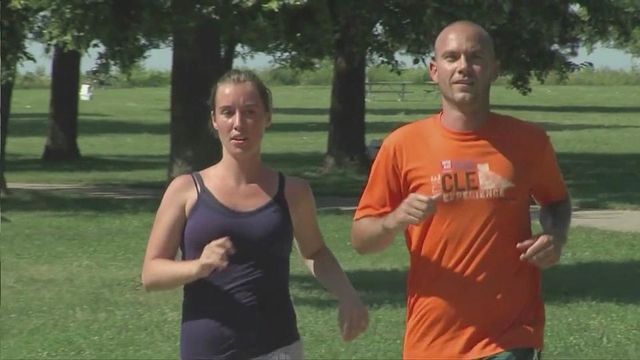Confusion, nausea could hint at heat-related illness as summer temps rise
Doctors say extreme heat like that raises the risk for heat-related illness, which is also true when the heat combines with humidity here in North Carolina.
Posted — UpdatedA severe heat wave this week has set new record highs for several cities in Southern California.
Palm Desert struck 123 degrees. The National Weather Service says the thermometer hit 112 degrees Monday in Lancaster, breaking the old record of 110 degrees set for the same day in 1961.
Another record was broken at the Bob Hope Airport in Burbank with 111 degrees. The old record was 106 degrees set for the same date in 2008.
Around Raleigh, the record high temperature for June 21 is 101 degrees, set in 1933. Temperatures this week could reach the high 90s around Raleigh by Thursday and break into the low 100s in Fayetteville.
Doctors say extreme heat like that raises the risk for heat-related illness, which is also true when the heat combines with humidity here in North Carolina.
Whether it's dry heat out West or humidity in the Southeast, high temperatures can put people at risk of serious health issues.
Heat illnesses range from heat cramps to heat exhaustion to heat stroke and hyperthermia.
"When you think about heat cramps, it's what you normally get, right? It's the tight muscles, cramps," said Dr. Seth Podolsky of the Cleveland Clinic. "When you start to get into that exhaustion piece, now really there's profuse sweating, you're getting very hot, your pulse may be going up, and at the far end, heat stroke is when you're no longer sweating, your body effectively isn't able to cool anymore and that's truly an emergency."
Podolsky also warns people about dehydration—a total loss of body water, which leads to a decrease in blood volume. Symptoms include dry mouth, increased thirst, headache, weakness and nausea.
At greatest risk are the elderly, the very young and anyone who has a condition that would make it difficult to regulate their body temperature.
It's important to check on elderly neighbors who might not be aware that they are suffering a heat emergency. They may become disoriented if their body temperature gets too high too fast.
If you've been out in the sun and start to experience symptoms of heat-related illness, Podolsky says stop what you're doing, get indoors or in the shade, drink some water and use cool compresses to relieve symptoms.
"If you have any concerns for severe heat exhaustion or heat stroke, certainly if you stop sweating, feel like you're going to pass out, nauseated, go to the emergency department or call 911," Podolsky said.
The most important thing you can do when you know you're going to be out in the heat for long periods of time is stay well hydrated.
That doesn't just mean drink plenty of water while you're working. Get a head start by taking in plenty of fluid the night before.
During the day, it's also important to take plenty of breaks in the shade.
Once a person suffers severe heat illness, though, they will be disoriented, confused and can't make that decision to call 911 for themselves. It's important for family, friends or bystanders to keep an eye on each other, ask questions and look for signs of a person complaining about a headache and nausea.
Don't wait. Call 911 and get that person in a cool place, in the shade with cool compresses until emergency help arrives.
• Credits
Copyright 2024 by Capitol Broadcasting Company. All rights reserved. This material may not be published, broadcast, rewritten or redistributed.






